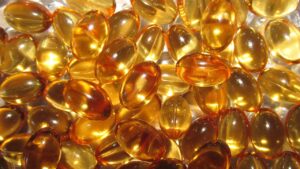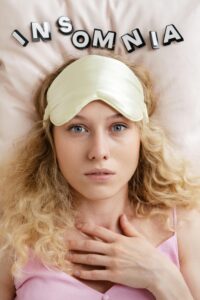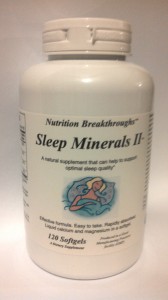 Teenage Insomnia Remedies – Studies, Doctor Advice and Tips
Teenage Insomnia Remedies – Studies, Doctor Advice and Tips
Teenagers are a special breed, having to face all the challenges of being in an in-between stage of life; not quite a child anymore and not yet an adult.
Along with an acceleration of social interests and activities, they also sustain accelerated physical growth and increased nutritional needs. According to the U.S. Department of Agriculture, 90% of teen girls and 70% of teen boys aren’t getting enough calcium. Their bones are growing the fastest during the teen years and they need more calcium than at any other time of life. The calcium deficiency can translate into irritability, nervous tension, hyperactivity, and insomnia.
Adelle Davis was the first nutritionist to base her recommendations on scientific research studies. She says: “If these hyperactive kids were recognized as victims of malnutrition and given, instead of drugs, a completely adequate diet, especially high in calcium, magnesium, and vitamins B6 and D; the majority might soon be as relaxed as sacks of cotton, their minds far more alert, their energies restored to normal. I have seen it happen many, many times.”
To shed some light on teenage sleeping habits, a study was published in the Journal of Adolescent Health. Researchers found that two-thirds of teenage high school students are sleeping less than they need to, when they actually need 9.5 hours of sleep. Danice Eaton, author of the study and a research scientist in Atlanta said, “Research (on teens) has shown that a lack of sleep can increase depression, negative physical health, headaches, poor school performance, school absenteeism and drowsy driving.”
There is a correlation between electronics use and insomnia in teens. A study from the Journal of Pediatrics published a survey of Philadelphia-area teens. It was found that two-thirds had a television in their bedroom, one third had a computer, 90% had their own cell phone and 79% had a personal music device.
“These technological devices activate the mind. It’s like having a stressful work conversation just before getting into bed,” said Dr. Jonathan Pletcher at the Children’s Hospital of Pittsburgh.
Dr. Pletcher doesn’t recommend sleep medication for teens, saying that, “The risks for this age group far outweigh the benefits.” He recommends shutting down the computer, TV, and cell phone well before bedtime and doing some relaxing and calming activities before bed.
Due to a deficiency of crucial minerals at the teenage time of life, calcium and magnesium supplements can be effective teenage insomnia remedies. One natural insomnia remedy that*s gaining in popularity for all ages is Sleep Minerals II from Nutrition Breakthroughs.
It contains highly absorbable forms of calcium and magnesium — the best minerals for sleeplessness and insomnia, as well as for heart health, restless leg syndrome, bone strength, menopause insomnia and teenage insomnia. It also contains vitamin D and zinc and is delivered in a softgel form with healthy carrier oils, making it better assimilated than tablets or capsules and providing a deeper, longer-lasting sleep.
Darleen T. of La Mesa, California says: “I purchased Sleep Minerals for my teenage daughter. When she started on the minerals she hadn’t been sleeping well for the past couple of years. She was run down and feeling beyond her years… exhausted. She is only 18. Once she started on Sleep Minerals she actually became tired at night, which is new. She can fall into a restful sleep by 10:30 p.m. and sleep all night. This product is a heaven send and has given her a life back.”
Besides supplementing with key minerals, there are additional tips to help teens sleep better. Here is a summary from the Mayo Clinic and National Sleep Foundation:
-
- Consuming caffeine close to bedtime can interfere with one*s sleep, so avoid coffee, tea, soda pop and chocolate late in the afternoon. Nicotine and alcohol will also interfere with sleep.
- Limit stimulating activities and the use of electronics right before bedtime.
- Reduce extracurricular activities. Sometimes teens are overextended and participate in too many after-school activities, too late into the evening.
- Practice relaxing and calming activities before going to bed. For example, do gentle stretches, take a warm bath, or read a pleasant book.
- Make the bedroom a sleep haven. Keep it cool, quiet and dark. If needed, get eyeshades, earplugs, and blackout curtains. Let in the bright light in the morning to signal the body to wake up.
- Get regular exercise during the day, but not closer than 3 hours before bedtime.
- Establish a regular bedtime and wake-time schedule and stick to it, coming as close to it as possible on the weekends. A consistent sleep schedule makes it easier to fall asleep.
Let*s help our teens get the sleep and nutrition they need!
For more information on Sleep Minerals II, click here.











